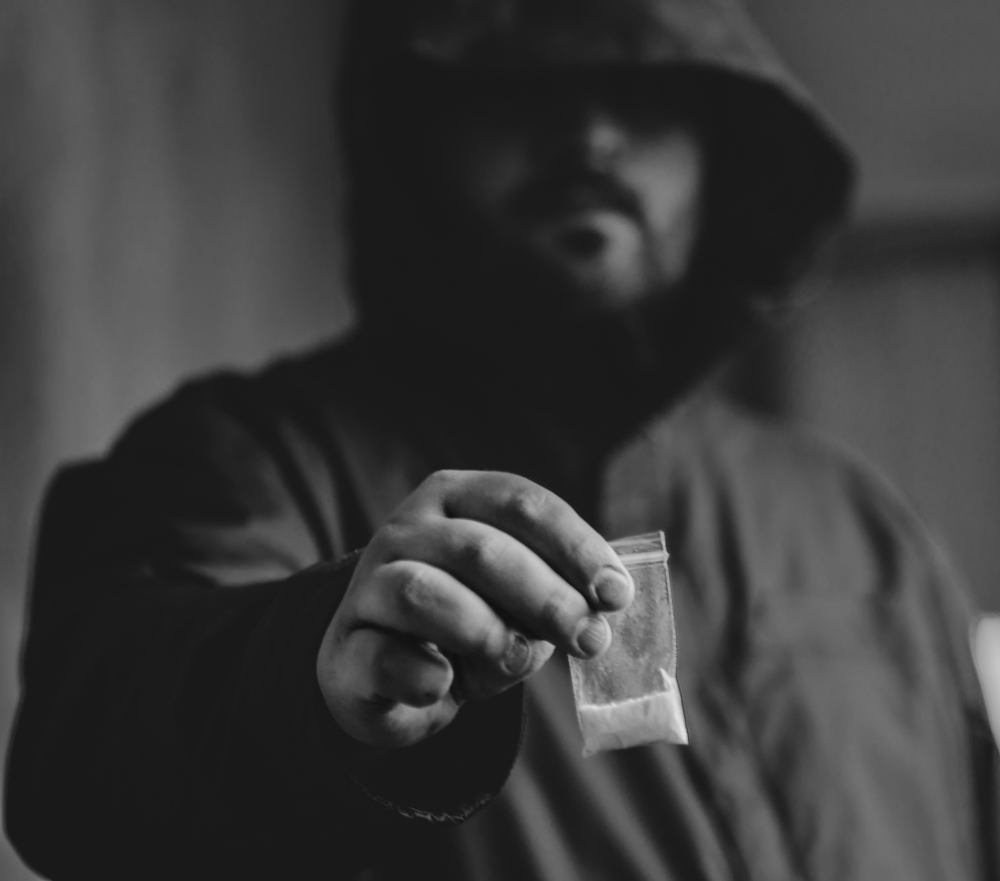What is A Wook? (And Other Drug User Terms)
People use a myriad of names to refer to drugs and alcohol. Some of these names are common, while others are only specific to certain groups. Usually, the more popular the substance, the more slang is associated with it. One popular term these days is "wook" and it's not at all like the Wookiee from Star Wars.
Slang terms come by as a way to communicate in-group, and in the case of substances, they may be for secrecy. People who abuse drugs or alcohol don’t always want their friends or family members to know. They also don’t want to be obvious when in public.
So, they’ll use slang names so that others won’t understand. Slang terms can range from derogatory names such as junkie or doper to nicer ones like a flower child. Some of the terms' meanings hint at what society thinks about drugs.
Read on to find out what is a wook and other common slang words:

A Wook
Wooks are people who abuse psychedelic drugs such as LSD, psilocybin mushrooms, DMT, ketamine, ecstasy pills, 2CI (a type of hallucinogenic drug), and PCP.
A wook depends on drugs, and they're usually so intoxicated that they rely on others for survival. Wooks don't have any ambition or motivation in life other than to get high. Because wooks are often addicted to drugs, they mostly need specialized addiction treatment, sometimes more than one type.
You can quickly spot a wook by the way they dress. Outwardly, they adorn hippyish clothes, long and untidy deadlocks, and a general counterculture fashion. Wooks also borrow anything they can think of, including money, but they can't hold down a job because they're constantly under the influence. You'll find them at the store trying to trade in a tube of toothpaste for something they like better.
A wook will do anything to get money from you - including lying. They'll come up with lies to justify what they want. Their self-entitlement nature makes them take things from other people even when it means stealing. Wooks are always broke and unable to pay back their debts, so they make promises that they fail to keep.
A Dopehead
Dopeheads are people who live for drugs, and everything revolves around getting high. They depend on drugs to feel good about themselves, whether through smoking pot or snorting cocaine. Dopeheads are usually:
- Untidy
- Low-income earners because they find it hard to keep a stable job
- Loners because they don't usually get along with many people in society
Dopeheads are not just people addicted to heroin but also meth, marijuana, and cocaine. They also tend to have a myriad of health problems - including mental health issues.
A Beatnik
Beatniks were the first generation of counterculture Americans who used drugs to rebel against mainstream society. They believed in authenticity through drug use and felt they were free from the standard rules in life. Most beatniks were intellectuals with a poetic spirit who knew how to express their rebelliousness through their words and music.
Many beatniks abused drugs such as marijuana and heroin, but in time, other drugs such as amphetamines also became popular in beatnik circles.

Hippies
The word hippie was derived in the 1960s, and it depicted a person who rejected conventional values, abused alcohol or drugs, had long hair and wore bright-colored clothes.
Hippies were more concerned with quick self-satisfaction rather than making money or following a career path. They lived in communities where addiction, free sex, and hallucinogenic drugs were acceptable. The hippie movement was the antithesis of conservative American culture, which clashed when war raged in Vietnam.
Hippies believed that the mainstream authority was responsible for all wrongs, including the Vietnam war. The movement advocated for love, not war, and members were known as the flower child because of their passion for peace. However, they lived out their mantra of 'make love' literally.
In the 1960s, many young people were empowered by the hippie movement and didn't fear experimenting with drugs. They believed that taking these drugs was a way to expand their mind and experience other states of consciousness. The same period saw the rise to fame of the Grateful Dead, an American rock band whose eclectic style was famous with the counterculture movement.
The hippie culture is still present today, even in social media. Hippies usually don't own anything, beg a lot, and they love music and festivals. The Haight Ashbury District is a famous hippie area in San Francisco, California, where you'll find the hippie culture alive. Many who refer to someone as a "wook" may be in the hippie category as well.
Cranker
A person who abuses crystal methamphetamine is called a cranker. Some slang dictionaries also refer to them as cranker, meth head, jig head, smackhead, and meth monster. Crystal methamphetamine is commonly referred to as blow clouds, tweaking, and smoking rain.
Meth is highly addictive, and it can be smoked, snorted, injected, or swallowed. The effects of meth are short yet powerful. People who abuse it have the urge to use the drug continuously.
Crankers are usually homeless because their addiction prevents them from keeping a job or being financially stable.
A Pusher

A pusher is someone who sells illegal drugs such as heroin and cocaine to addicts. Some slang words for a pusher include a chemist, candyman, copycat, herb doctor, peddler, dope peddler, source, square, and trap queen. Pushers are usually affiliated with massive drug cartels or gangs because they need to sell large amounts of drugs to profit.
Dipper Head
A dipper head is a PCP (Phencyclidine) user, also known as a duster head. According to the National Institute on Drug Abuse, PCP use is one of the most dangerous addictions as the drug alters the mind leading to hallucinations. It leads to a distortion of one's environment, self, colors, sights, and perceptions.
Phencyclidine intoxication symptoms may include delusions, hallucinations, disorientation, and clouded sensories. PCP abuse also disrupts sensory and time perception and produces inert movement disorders such as catatonia or stupor. PCP has a high potential for abuse and may lead to psychological dependence.
Junkie
A junkie or a cotton shooter is someone who's addicted to heroin. A casual user is a chipper, while those in their 40s and 50s are called dinosaurs.
Heroin use is a problem all over the world. Many people die every year from heroin use and heroin overdoses. In 2016, 948000 people reported using heroin in the USA in the past year.
Heroin is an opioid drug that gives users a euphoric effect. Heroin addiction symptoms include severe withdrawal symptoms, cravings for heroin, lack of control over usage, and compulsive drug use. Treatment programs are effective for those addicted to heroin.

Candy Man
A drug dealer who sells heroin laced with fentanyl or some other opioid pain reliever is a candyman. Fentanyl is 50-100 times more potent than Morphine. Other street names for fentanyl include Apache, China Girl, Friend, Goodfella, Jackpot, Murder 8, TNT, and Cash.
Candy-flipping
Candy flipping is when LSD is mixed with MDMA (ecstasy). The effects of candy-flipping are similar to both drugs, which creates intense euphoria. Some people feel sick after taking this combination. This experience could be a pathway to someone becoming a wook, themselves.
Chippers
Chippers are people who use drugs occasionally rather than all the time. They might even go for months without using any drugs, but they use them in low or moderate doses when they do choose to.
Many people who abuse drugs started as chippers. Chipping is not officially categorized among substance use disorders or addictions, but it can lead to one if users don't cut back their usage over time.
Drug abuse and addiction is a severe problem. Many people are addicted to drugs without realizing it because they might not consider mild drug abuse a problem. The risk factors supersede momentary pleasure. It is recommended that addicts get help from a treatment center to stop addiction and get on the road to recovery.